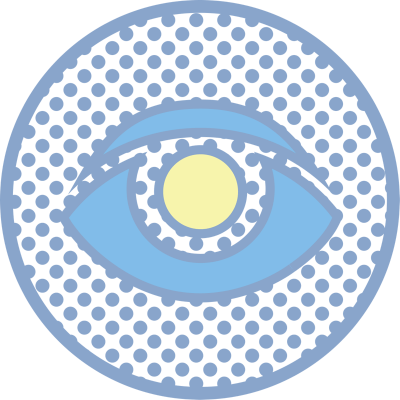What is an Eye Twitch?
An eye twitch, medically known as myokymia, is a repetitive, involuntary spasm of the muscles in the eyelid, usually the upper lid. Though it’s often harmless, persistent or severe twitching can be bothersome and may indicate an underlying issue. This condition ranges from mild discomfort to chronic episodes that interfere with daily life.
Eye twitching is common and can last for a few seconds or recur over several days or weeks. While most people experience mild forms of eye twitching, understanding its causes and remedies can help you manage it effectively. Whether you’re experiencing left eye twitching, right eye twitching, or even twitching in both eyes, recognizing the triggers and knowing when to seek help is crucial.

Common Causes of Eye Twitching
-
Stress:
One of the most common triggers, stress affects the nervous system, leading to muscle contractions around the eye. High-pressure environments or emotional stress can exacerbate the condition.
-
Fatigue and Lack of Sleep:
Insufficient rest can lead to eye strain and muscle fatigue, causing the eyelid muscles to twitch. Consistent sleep deprivation can worsen the frequency and intensity of the twitch.
-
Caffeine and Alcohol Intake:
Excessive consumption of stimulants like coffee, energy drinks, or alcohol can overexcite the nerves, resulting in involuntary eye movements.
-
Digital Eye Strain (Computer Vision Syndrome):
Prolonged screen use without breaks can strain your eye muscles. Blue light exposure and long periods of concentration are common culprits behind eye twitches in the digital era.
-
Nutritional Deficiencies:
Low levels of magnesium, potassium, or vitamin D can contribute to muscle spasms, including eye twitches. A balanced diet is crucial to avoid such deficiencies.
-
Mizio:
Eye allergies can cause irritation, itchiness, and watering, leading to frequent blinking and eventual twitching. Histamine release from allergies can affect muscle movement.
-
Macho Kavu:
Lack of lubrication in the eyes due to tear production issues can result in irritation and twitching. This is common in individuals who wear contact lenses or are over 50.
-
Neurological Conditions:
In rare cases, persistent twitching may be linked to conditions like blepharospasm or hemifacial spasm, which require medical attention.
1. Minor Eye Twitch (Myokymia):
- The most common form, usually affecting the upper eyelid.
- Triggered by lifestyle factors like stress or fatigue.
2. Essential Blepharospasm:
- Characterized by involuntary muscle contractions around both eyes.
- More severe and may affect vision temporarily.
3. Hemifacial Spasm:
- Affects one side of the face, including the eyelid.
- Often caused by pressure on facial nerve.
When Should You Be Concerned?
Most cases of eye twitching resolve on their own within a few days or weeks. However, seek medical attention if:
-
The twitching persists for more than a few weeks.
-
There is noticeable swelling, redness, or discharge.
-
The twitch spreads to other areas of the face.
-
You experience drooping of the eyelid (ptosis).
-
Vision is affected or becomes blurred.
These symptoms could indicate a more serious condition like Bell’s palsy or dystonia. If you’re experiencing persistent left eye twitching, right eye twitching, or twitching in both eyes, it’s important to rule out potential underlying issues.
Effective Treatment Options for Eye Twitching
Lifestyle Modifications
- Reducing stress through yoga, meditation, or breathing exercises can significantly help.
- Ensuring 7-8 hours of quality sleep per night is crucial.
Limit Caffeine and Alcohol
- Cutting down on stimulants like coffee and alcohol may reduce the severity of twitches.
Take Regular Screen Breaks
- Follow the 20-20-20 rule: every 20 minutes, look at something 20 feet away for 20 seconds.
- Use blue light filters or anti-glare screens to minimize digital strain.
Apply Warm Compresses
- A warm compress relaxes the eye muscles and promotes blood flow, providing relief from spasms.
Manage Allergies
- Over-the-counter antihistamines can help relieve itching and swelling, reducing twitching caused by allergic reactions.
Maintain Proper Nutrition
- Incorporate magnesium-rich foods like spinach, almonds, and bananas into your diet.
- Vitamin D supplements can be considered after consulting a healthcare professional.
Artificial Tears
- Lubricating eye drops can relieve irritation caused by dry eyes, thereby reducing twitching.
Botox Injections
- For severe cases, Botox injections can temporarily paralyze the overactive muscles, providing relief from chronic eye twitches.
Medical Procedures
- If a neurological condition is identified, treatments may involve medications or minor surgical interventions.
Home Remedies to Prevent Eye Twitching
-
Stay Hydrated: Dehydration can worsen muscle contractions, so ensure adequate water intake.
-
Gentle Eye Massages: Massage your eyelid area in circular motions to relax the muscles.
-
Cold Compress: Applying a cold pack can reduce inflammation and soothe twitching.
-
Limit Screen Time Before Bed: Reducing exposure to blue light at night can promote better sleep and reduce eye strain.
-
Use Essential Oils: Aromatherapy with calming oils like lavender or chamomile may help relax the body and reduce stress-induced twitching.
Understanding the Connection Between Eye Blinking and Twitching
Frequent eye blinking can sometimes be mistaken for eye twitching. Blinking is a natural reflex to keep the eyes moist and clean. However, when blinking becomes excessive due to irritation, dryness, or allergies, it may lead to muscle spasms and twitching. If you’re experiencing eye blinking for unknown reasons, consult an eye specialist to identify the root cause.
Preventing Recurrence
Once the immediate symptoms have been managed, consider making long-term changes to avoid recurrence:
- Maintain a consistent sleep schedule.
- Schedule regular eye exams to catch issues early.
- Follow a balanced diet rich in nutrients essential for muscle health.
- Manage stress through regular exercise and mindfulness practices.
Eye Twitching as a Disease or Symptom?
In most cases, eye twitching is a symptom triggered by environmental, lifestyle, or health factors. However, in some instances, it may be classified as part of an underlying condition, such as eye twitching disease associated with neurological issues or chronic muscle spasms. If you are experiencing prolonged symptoms, consult a specialist for a diagnosis.
Myths About Eye Twitching
- Myth: Eye twitching is a sign of bad luck.
- Reality: No scientific basis supports this belief. It is a medical condition with identifiable triggers.
- Myth: Only older people experience severe eye twitching.
- Reality: Eye twitching can affect anyone, including younger individuals, especially due to digital eye strain.
- Myth: Eye twitching will cause blindness.
- Reality: Most cases of eye twitching are harmless and temporary. Severe cases linked to underlying issues are rare and treatable.
Frequently Asked Questions (FAQs) about Eye Twitching
Is eye twitching dangerous?
Eye twitching is typically harmless and resolves on its own. However, persistent or severe twitching may require medical attention to rule out underlying conditions.
What triggers eye twitching most often?
Common triggers include stress, fatigue, caffeine, digital eye strain, and nutritional deficiencies. Managing these factors can help reduce twitching episodes.
Why do I experience left or right eye twitching more frequently?
Twitching can be localized to one eye due to stress, fatigue, or strain on that specific side. Persistent twitching in one eye should be checked by a doctor.
Can allergies cause eye twitching?
Yes, allergies can cause itching, irritation, and frequent blinking, which may lead to twitching. Managing allergy symptoms with antihistamines can help.
What home remedies can stop an eye twitch quickly?
Applying a warm compress, gentle massage, and reducing caffeine intake can help alleviate mild twitching episodes.
When should I see a doctor for eye twitching?
You should consult a doctor if the twitching lasts more than a few weeks, affects vision, spreads to other facial muscles, or is accompanied by other symptoms.
Eye twitching is often harmless but can be a nuisance if it persists. Simple lifestyle changes, such as reducing stress, improving sleep habits, and managing screen time, can help alleviate the condition. However, persistent or severe cases require medical attention to rule out underlying neurological disorders.
Whether you’re dealing with left eye twitching, right eye twitching, or muscle spasms affecting both eyes, getting the right diagnosis and treatment is essential for
long-term relief. If you’re experiencing prolonged eye twitching, don’t hesitate to book a consultation at Dr Agarwals Eye Hospital. Our team of experienced specialists can help diagnose and treat the root cause, ensuring you regain comfort and clear vision.

Usipuuze shida ya macho!
Sasa unaweza kufikia madaktari wetu wakuu kwa kuweka nafasi ya mashauriano ya video mtandaoni au miadi ya hospitali
Weka miadi sasa